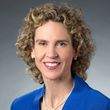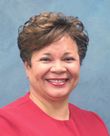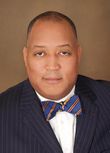Municipal elections in Charlotte, North Carolina (2017)
2019 →
← 2015
|
| 2017 Charlotte city council elections |
|---|
| Election dates |
| Filing deadline: July 21, 2017 |
| Primary election: September 12, 2017 General election: November 7, 2017 |
| Election stats |
| Offices up: Mayor & city council |
| Total seats up: 12 (click here for the mayoral election) |
| Election type: Partisan |
| Other municipal elections |
| U.S. municipal elections, 2017 |
The city of Charlotte, North Carolina, held elections for mayor and city council on November 7, 2017. All 11 seats on the city council—four at-large seats and seven district seats—were up for election. Six new members were elected to the council, although the partisan make-up stayed the same with nine Democrats and two Republicans. Mecklenburg County voters also passed a $922 million school bond referendum on general election day.
There were four open races for city council; at-large representative Vi Lyles and District 6 incumbent Kenny Smith ran for mayor, District 2 incumbent Al Austin did not file for re-election, and District 5 incumbent Dimple Ajmera ran for (and was elected to) an at-large seat. In September, there were competitive Democratic primaries in Districts 1, 2, 4, 5, and the at-large race. There was a competitive Republican primary in District 6. Democratic incumbents Claire Green Fallon and Patsy Kinsey were defeated in the primary election.
Click here for more information about the Charlotte mayoral election. A primary was held on September 12, 2017. A primary runoff was held on October 10, 2017, for the District 5 race. Matt Newton won the runoff after he and Darrell Bonapart advanced from the six-person primary race in September. A candidate needed to receive over 40 percent of the vote in order to avoid a runoff election. The general election occurred on November 7, 2017.[1]
Issues like the police shooting of Keith Lamont Scott and the clash between Charlotte's non-discrimination ordinance and the state's House Bill 2 were national news in 2016 and are contributing to an increased interest in the city's municipal elections.
Elections
General election
This symbol, ![]() , next to a candidate's name indicates his or her participation in Ballotpedia's municipal government candidate survey. Click the image next to a candidate's name to jump to their page detailing their responses.
, next to a candidate's name indicates his or her participation in Ballotpedia's municipal government candidate survey. Click the image next to a candidate's name to jump to their page detailing their responses.
At-large (4 seats)
Note: Incumbent Vi Lyles filed to run for mayor.
☑ ![]() Julie Eiselt (i)
Julie Eiselt (i)
☑ ![]() James "Smuggie" Mitchell (i)
James "Smuggie" Mitchell (i)
☑ ![]() Dimple Ajmera
Dimple Ajmera ![]()
☑ ![]() Braxton Winston II
Braxton Winston II ![]()
☐ ![]() Parker Cains
Parker Cains
☐ ![]() John K. Powell Jr.
John K. Powell Jr.
☐ ![]() David Michael Rice
David Michael Rice ![]()
☐ ![]() Steven DiFiore II
Steven DiFiore II ![]()
District 1
District 2
Note: Incumbent Al Austin resigned in July 2017. Carlenia Ivory was appointed to replace him.
☑ ![]() Justin Harlow
Justin Harlow ![]()
☐ ![]() Pete Givens
Pete Givens
District 3
☑ ![]() LaWana Mayfield (i)
LaWana Mayfield (i)
☐ ![]() Daniel Herrera
Daniel Herrera ![]()
District 4
☑ ![]() Greg Phipps (i)
Greg Phipps (i)
District 5
District 6
Note: Incumbent Kenny Smith filed to run for mayor.
☐ ![]() Sam Grundman
Sam Grundman ![]()
☑ ![]() Tariq Bokhari
Tariq Bokhari
☐ ![]() Jeff Scott
Jeff Scott ![]()
District 7
☑ ![]() Edmund H. Driggs (i)
Edmund H. Driggs (i)
☐ ![]() Sharon Roberts
Sharon Roberts
Primary election
This symbol, ![]() , next to a candidate's name indicates his or her participation in Ballotpedia's municipal government candidate survey. Click the image next to a candidate's name to jump to their page detailing their responses.
, next to a candidate's name indicates his or her participation in Ballotpedia's municipal government candidate survey. Click the image next to a candidate's name to jump to their page detailing their responses.
At-large (4 seats)
Note: Incumbent Vi Lyles filed to run for mayor.
Democratic primary 
- ☑ Julie Eiselt (i)
- ☐ Claire Green Fallon (i)
- ☑ James "Smuggie" Mitchell (i)
- ☑ Dimple Ajmera

- ☐ Jesse Boyd
- ☐ Roderick Davis

- ☐ Ryan McGill
- ☑ Braxton Winston II

District 1
Democratic primary 
- ☐ Patsy Kinsey (i)
- ☑ Larken Egleston

- ☐ Robert Mitchell

District 2
Note: Incumbent Al Austin resigned in July 2017. Carlenia Ivory was appointed to replace him.
Democratic primary 
District 4
Democratic primary 
District 5
Note: Incumbent Dimple Ajmera filed to run for an at-large seat.
Democratic primary runoff 
The runoff election was on October 10, 2017.
Democratic primary 
 Darrell Bonapart
Darrell Bonapart 
- ☐ Kris Chambers-Woodruff

- ☐ Scott Derek Jenkins

 Matt Newton
Matt Newton- ☐ Vinroy Reid
- ☐ Gary Young II
District 6
Note: Incumbent Kenny Smith filed to run for mayor.
Republican primary 
Campaign finance
The tables below show campaign finance amounts for Charlotte city council candidates as of August 29, 2017. Candidates without information below did not have reports available as of October 3, 2017.
Ballot measures
• Bond Referendum: Mecklenburg County School Bond Issue ![]()
| A yes vote was a vote in favor of increasing the county's debt by $922 million by issuing bonds in that amount to fund Charlotte-Mecklenburg school projects. |
| A no vote was a vote against increasing the county's debt by $922 million by issuing bonds in that amount to fund Charlotte-Mecklenburg school projects. |
Additional elections on the ballot
- See also: North Carolina elections, 2017
The general election for the Charlotte City Council shared the ballot with elections for mayor of Charlotte and six seats on the Charlotte-Mecklenburg Schools school board.
Issues
Police and public safety
Keith Scott shooting
One issue that emerged in the mayoral race was the city’s handling of a police-involved shooting in fall 2016.
On September 20, 2016, Officer Brentley Vinson arrived at an apartment complex to serve a warrant. In the parking lot, he fired four times on an uninvolved man, Keith Lamont Scott. Vinson said he believed that Scott was exiting his car armed with a handgun and that Scott ignored his commands. Scott died from the gunshot wounds in the hospital. Scott's death and a dispute over whether he was armed prompted a curfew and spurred several days and nights of protests and property damage in Charlotte. During the protests police deployed tear gas, more than a dozen police officers sustained minor injuries, and a protester was shot by a civilian and later died. North Carolina Gov. Pat McCrory (R) declared a state of emergency in Charlotte late on September 21, 2016.[2][3]
Mayor Jennifer Roberts was criticized due to the city's initial refusal to release footage of the shooting from the police officer's body camera and dashboard camera. Six days after the shooting, Roberts wrote an op-ed saying that the city should have been more transparent and should have released the video earlier. She was also criticized for not calling a curfew or accepting additional law enforcement help from the state soon enough. Roberts and the city council faced an angry crowd at the city council meeting on September 26, 2016. Some people called for her and Charlotte-Mecklenburg police Chief Kerr Putney to resign.[4]
At a candidate forum in April 2017, Roberts defended her actions in the aftermath of the shooting. "I was the first city official to call for full release of body camera video," she said. "I wrote an editorial and I got heat for it. I called us – the city – out for not being transparent." State Sen. Joel Ford accused her of using the op-ed to put the blame on the police chief, which Roberts denied. "If you have a problem with the chief, you take him in the back. When you undermine authority, you open it up for everyone else to do the same," said Ford. Councilwoman Vi Lyles said they should stop using the word transparent. "I believe that if we can't trust (CMPD) then we have to do something differently. We have to make the department look more like our community. I will work very hard to do that," she said.[5]
| Positions of 2017 mayoral candidates on police and public safety | ||||||||||||||||||||||||||||||||
|---|---|---|---|---|---|---|---|---|---|---|---|---|---|---|---|---|---|---|---|---|---|---|---|---|---|---|---|---|---|---|---|---|
| ||||||||||||||||||||||||||||||||
Non-discrimination ordinance
The non-discrimination ordinance that the Charlotte City Council passed in February 2016 prompted the General Assembly of North Carolina to pass a bill preempting the local ordinance and launching the topic into a national debate. The state repealed its law in March 2017, but the issue was still expected to be a presence in the 2017 mayoral race.
All three Democratic candidates said they supported expanding LGBT rights and protections. Mayor Jennifer Roberts criticized the state bill that repealed HB2 because it prohibited local governments from enacting any anti-discrimination policies for three years. When asked about the HB2 repeal bill, Councilwoman Vi Lyles said, "I supported the nondiscrimination ordinance. That’s what passed and we have to have something to go forward. When you’re in government… sometimes you have to support things that move us forward." State Sen. Joel Ford criticized Roberts' relations with the state government and said he would be more effective in working with the governor and the general assembly. Councilman Kenny Smith, on the Republican side, voted against the non-discrimination ordinance in 2015 and 2016. He called it the "most divisive issue ever."[11]
Click through the timeline below to see the major events related to Charlotte's non-discrimination ordinance and the state's HB2.
Partisan make-up of city council
The following table shows the partisan affiliations of council members, including the mayor, heading into the 2017 election as indicated in their candidate filings from 2015 and 2017. The Charlotte City Council was governed by a 10-2 Democratic majority heading into the 2017 election.
| Charlotte City Council | |||
|---|---|---|---|
| District | Member | Party | 2017 result |
| Mayor | Jennifer Roberts | Defeated: replaced by Democrat | |
| At-large | Julie Eiselt | Re-elected | |
| At-large | Claire Green Fallon | Defeated: replaced by Democrat | |
| At-large | Vi Lyles | Did not seek re-election: replaced by Democrat | |
| At-large | James "Smuggie" Mitchell | Re-elected | |
| 1 | Patsy Kinsey | Defeated: replaced by Democrat | |
| 2 | Carlenia Ivory | Did not seek re-election: replaced by Democrat | |
| 3 | LaWana Mayfield | Re-elected | |
| 4 | Greg Phipps | Re-elected | |
| 5 | Dimple Ajmera | Did not seek re-election: replaced by Democrat | |
| 6 | Kenny Smith | Did not seek re-election: replaced by Republican | |
| 7 | Edmund H. Driggs | Re-elected | |
District map
Below is a map of Charlotte's council districts. Each of the seven districts elect its own representative to the council.

About the city
- See also: Charlotte, North Carolina
Charlotte is a city located in Mecklenburg County, North Carolina. As of 2010, its population was 731,424.
City government
- See also: Council-manager government
Since 1929, the city of Charlotte has utilized a council-manager system. In this form of municipal government, an elected city council—which includes the mayor and serves as the city's primary legislative body—appoints a chief executive called a city manager to oversee day-to-day municipal operations and implement the council's policy and legislative initiatives.[12]
Demographics
The following table displays demographic data provided by the United States Census Bureau.
| Demographic Data for Charlotte, North Carolina | ||
|---|---|---|
| Charlotte | North Carolina | |
| Population | 731,424 | 9,535,483 |
| Land area (sq mi) | 307 | 48,622 |
| Race and ethnicity** | ||
| White | 48.8% | 68.7% |
| Black/African American | 35.2% | 21.4% |
| Asian | 6.5% | 2.9% |
| Native American | 0.4% | 1.2% |
| Pacific Islander | 0.1% | 0.1% |
| Other (single race) | 6.1% | 3.1% |
| Multiple | 2.8% | 2.7% |
| Hispanic/Latino | 14.3% | 9.4% |
| Education | ||
| High school graduation rate | 89.1% | 87.8% |
| College graduation rate | 44.3% | 31.3% |
| Income | ||
| Median household income | $62,817 | $54,602 |
| Persons below poverty level | 12.8% | 14.7% |
| Source: population provided by U.S. Census Bureau, "Decennial Census" (2010). Other figures provided by U.S. Census Bureau, "American Community Survey" (5-year estimates 2014-2019). | ||
| **Note: Percentages for race and ethnicity may add up to more than 100 percent because respondents may report more than one race and the Hispanic/Latino ethnicity may be selected in conjunction with any race. Read more about race and ethnicity in the census here. | ||
Recent news
The link below is to the most recent stories in a Google news search for the terms Charlotte city council election. These results are automatically generated from Google. Ballotpedia does not curate or endorse these articles.
See also
| Charlotte, North Carolina | North Carolina | Municipal government | Other local coverage |
|---|---|---|---|
|
|
External links
Footnotes
- ↑ Mecklenburg County, North Carolina, "Multi Year Election Schedule," accessed February 22, 2017
- ↑ BBC, "Charlotte police: Keith Scott was warned to drop gun," September 21, 2016
- ↑ NPR, "3rd Night Of Charlotte Protests Is Peaceful; Protester Shot Wednesday Dies," September 22, 2016
- ↑ Charlotte Observer, "Charlotte mayor faces furious crowd at City Council meeting," September 26, 2016
- ↑ Charlotte Observer, "Charlotte’s first mayoral debate drew unusually large crowd. Interest may only grow," April 22, 2017
- ↑ 6.0 6.1 6.2 6.3 Note: This text is quoted verbatim from the original source. Any inconsistencies are attributable to the original source.
- ↑ wsoctv.com, "Mayor Roberts focuses on transportation, public safety in state of city address," February 6, 2017
- ↑ Vi Lyles campaign website, "Vi’s 7-Point Plan for a More Equitable Charlotte," accessed July 6, 2017
- ↑ Joel Ford campaign website, "Joel Ford's Crime Fighting Plan For City Of Charlotte," accessed July 6, 2017
- ↑ Kenny Smith campaign website, accessed July 6, 2017
- ↑ Charlotte Observer, "HB2 may be dead. But it’s very much alive in Charlotte’s mayoral race," April 7, 2017
- ↑ City of Charlotte, "Government at a Glace," accessed August 26, 2014
 |
State of North Carolina Raleigh (capital) |
|---|---|
| Elections |
What's on my ballot? | Elections in 2026 | How to vote | How to run for office | Ballot measures |
| Government |
Who represents me? | U.S. President | U.S. Congress | Federal courts | State executives | State legislature | State and local courts | Counties | Cities | School districts | Public policy |












